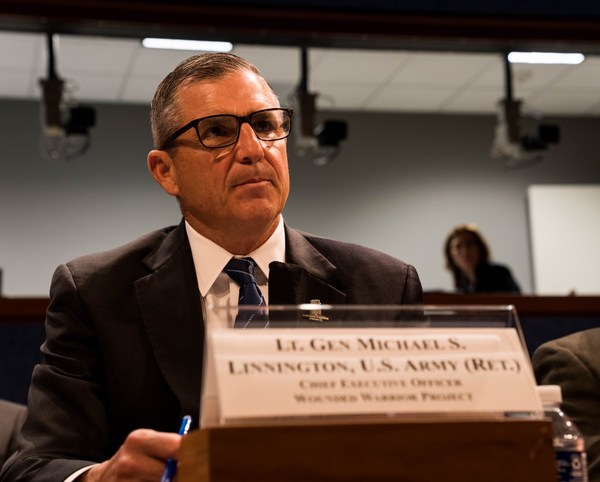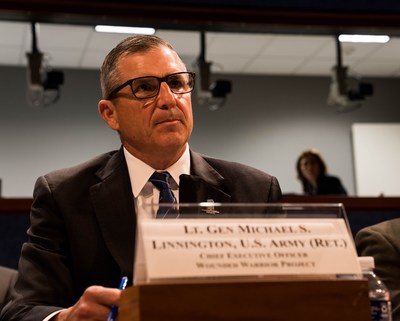Toxic Exposure and Mental Health Top Wounded Warrior Project's List of Legislative Priorities
WASHINGTON, March 2, 2022 /PRNewswire/ -- In testimony before the U.S. House and Senate Committees on Veterans' Affairs, Wounded Warrior Project® (WWP) CEO Lt. Gen. (Ret.) Mike Linnington today called on Congress to support legislation that will improve the health and well-being of wounded veterans who served after 9/11.
WWP urged members of the Committees to address six priorities:
- Toxic Exposure – grant health care eligibility and improve the disability benefits process for all veterans who served in areas of known toxic exposures. WWP specifically advocated for passage of comprehensive legislation that has been introduced in the Senate – S. 3003, the Comprehensive and Overdue Support for Troops (COST) of War Act; and the House – H.R. 3967, the Honoring Our Promise to Address Comprehensive Toxics (PACT) Act.
- Mental Health – ensure the U.S. Department of Veterans Affairs (VA) is a leader in evidence-based treatment and research, and a key coordinator of community-wide efforts to prevent veteran suicide.
- Women Warriors – continue to support the growing population of women veterans by expanding access to gender-specific care, fostering ongoing connection and support, and improving coordination of care and benefits for survivors of military sexual trauma (MST).
- Long-Term Care and Support – promote the use and success of VA's long-term care programs for younger veterans, including those who have suffered traumatic brain injuries (TBI) during their service.
- Caregivers – ensure the Program of Comprehensive Assistance for Family Caregivers (PCAFC) continues to support veterans who require great care and attention.
- Financial Security – modernize and improve VA's systems of support and better recognize how financial security is an important factor in veterans' success after their service.
Read WWP's full written testimony and learn more about the group's 2022 Legislative Priorities.
"Your actions to address these important issues will have a particularly strong impact on the post-9/11 generation of veterans," Linnington said. "WWP stands by as your partner in meeting the needs of all who served – and all who support them."
To illustrate the need for Congress to act on these veterans' issues, Linnington highlighted the findings in WWP's latest Annual Warrior Survey, which was released last week. For example, the survey found 98% of warriors reported some exposure to hazardous or toxic substances during military service, and 73% of those deployed in Operations Enduring Freedom, Iraqi Freedom, and New Dawn reported serving near a burn pit. Moreover, Linnington pointed out that the 2021 AWS found only 56.6% of warriors reported receiving mental health care at a VA Medical Center, despite the prevalence of PTSD (75%), anxiety (74%), and depression (72%).
About Wounded Warrior Project
Since 2003, Wounded Warrior Project® (WWP) has been meeting the growing needs of warriors, their families, and caregivers — helping them achieve their highest ambition. Learn more.
SOURCE Wounded Warrior Project



